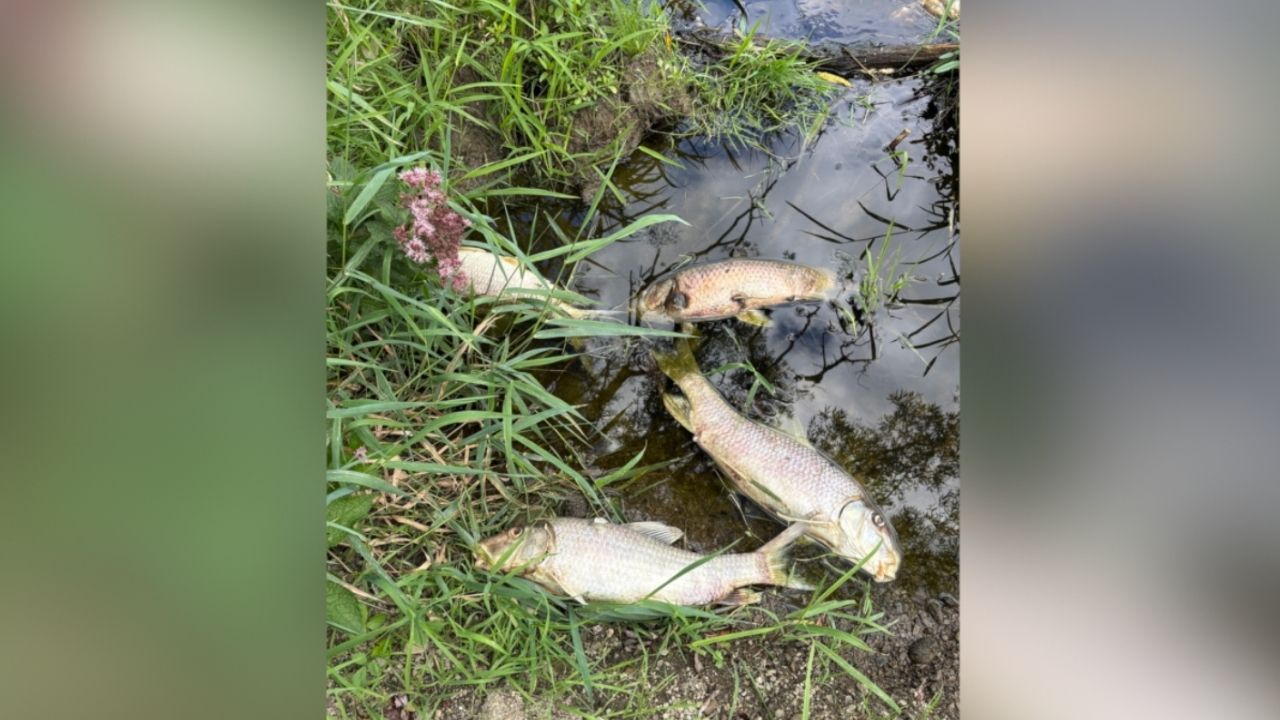FRANKLINVILLE, N.Y. (WKBW) — Nearly a week after tens of thousands of fish and other wildlife were found dead along Ischua Creek, residents in Franklinville are demanding answers and action.
The New York State Department of Environmental Conservation confirmed last week that the discharge came from the nearby Great Lakes Cheese facility and was responsible for the environmental damage.
Longtime resident Ken Kellner said the sight is devastating.

“I got 60 years on that creek,” Kellner said. “They took a big chunk of my life away, and I am not happy with it.”Over the past week, Kellner has documented the damage with photos and says he’s never seen anything like it in all his years living in the valley.

“They did it. They killed our fish,” he said. “You can’t go back and restock that creek; there’s nothing for them to eat.”
The DEC said the facility’s discharge was not in compliance with its environmental permit, which allows up to 900,000 gallons of treated wastewater per day.
WATCH: 'We want answers': Protest planned at Great Lakes Cheese after Ischua Creek fish kill
The agency noted that the discharge, which includes milk and other dairy byproduct,s likely caused low oxygen levels and elevated nutrients in the water. Those conditions, combined with warm weather and already low water levels, proved deadly for aquatic life.

Despite those findings, there is still no specific answer to exactly what was released into the creek.
Great Lakes Cheese has voluntarily paused all discharge into Ischua Creek while the investigation is ongoing. In a recent statement, the company said:
Identifying the root cause of last week's incident and environmental impacts on Ischua Creek as quickly as possible remains our immediate priority.
Great Lakes Cheese continues to work in close collaboration with the New York State Department of Environmental Conservation and other state agencies in looking at the discharge of organic waste from our wastewater treatment operations and other factors, such as low dissolved oxygen, combined with warm and low stream levels.
This process takes time, and we are committed to following that process through, in close, daily collaboration with the DEC, to its safe, necessary conclusion.
Our voluntary pause in discharge outfall into Ischua Creek remains in effect to aid the investigation and assessment process. Meanwhile, we have returned our workforce to the facility to complete different business critical tasks during our voluntary pause, which include warehousing and order fulfillment. None of these tasks will impact our efforts to optimize the wastewater treatment facility.
Our employee-owners are the foundation of our company. Completing these activities allows them to continue working while the assessment and investigation process continues, meeting both our obligation to both our local workforce and our commitment to maintaining environmentally responsible operations.
Now, community members like Kellner are organizing a peaceful protest set for Friday at noon outside the Great Lakes Cheese facility. Ken said they want accountability, answers, and long-term environmental protections in place.
“Let’s have a peaceful protest. Let’s get it out there, what we want, and let’s have a safe day and make it good,” Kellner said. “We want accountability, and we want this cleaned up,” he continued. “We want to be reassured that they’re going to take care of things. We’re worried about our kids and the future of this valley.”
The DEC said it is continuing to monitor fish and wildlife in and around Ischua Creek, as well as nearby drinking water sources, and encourages residents to report any sick or dead wildlife to at (716) 851-7201.




